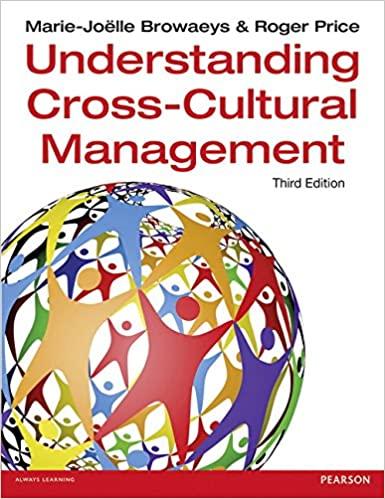The United Arab Emirates (UAE) is unique in that expatriates constitute more than 80 per cent of
Question:
The United Arab Emirates (UAE) is unique in that expatriates constitute more than 80 per cent of the population. As the country continues to grow and accept foreigners at an astounding pace, Emiratis worry that their national identity and culture are at stake. The issue has become so pressing that President Sheikh Khalifa Bin Zayed al-Nahyan declared 2008 UAE national identity year.
'People here have the feeling that we are losing our own country if this double-digit [expatriate percentage of population] growth continues and if the government does not address the problem and address it squarely and urgently', says Abdulkhaleq Abdulla, a professor of political science at United Arab Emirates University in Al Ain.
Issues such as the demographic imbalance, the disappearance of the Arabic language, competition over jobs, lagging education and a lack of sensitivity towards Emirati cultural and religious values, have been discussed in the past, but are now taking centre stage.
Last month, a two-day forum on national identity took place in Abu Dhabi to debate such issues openly for the first time. The conference, organized by the Ministry of Culture, Youth and Community Development, featured more than 30 high-level government and private-sector speakers.
Participants spoke their minds. Ahmad al-Tayer, chairman of the National Human Resources Development and Employment Authority (Tanmia), said: ‘Today, an Emirati student is being taught Islamic studies in English by a Pakistani. This is the state of our nation.’
Meanwhile, Dubai's police chief, Lieutenant General Dahi Khalfan Tamim, warned that there would be serious security issues if demographic balance was not restored. He advocated reducing foreign workers from any single country to a maximum 25 per cent of the population, according to press reports. He also suggested that property ownership be opened mostly to Emiratis and Arabs, and that increased childbearing should be a national strategy.
The UAE is a young country, created in 1971, but it attracted foreigners early on due to its strategic trade location and with the discovery of oil. During the period 1975 to 2004, the population of nationals increased 4.5 times while the expatriate population increased almost tenfold.
'We had this problem before. There were voices that were asking since the mid-70s [about the loss of national identity] when the country started construction', says Ebtisam al-Katbi, also a professor of political science at UAE University. Prof. al-Katbi says several factors have exacerbated this problem. First, most foreigners coming to the UAE were initially Arab or Muslim, or from similar cultures. Today, more are coming from the west, Russia or the Balkan countries, where the cultural values are markedly different. 'It's not their fault. They come, they are not aware of the people's values, the culture, what should be done and what should not be done', she says. 'But they have misused their freedom here. I've never seen people who go to work or malls with this kind of dress. I'm not calling for conservative action, but this is still a Muslim country.' 'It's not a matter now of labour. You can limit labour. The problem now is that we are selling properties to expatriates. You cannot limit that’, says Prof. al-Katbi. Foreigners should be welcomed on a temporary basis, not as permanent residents, she says. ‘We are giving 99 years for those who are buying the properties to stay here. Why 99? Five years is enough.’
Some Emiratis, especially among the younger generation, say that expatriates are a part of the equation. Mishaal al-Gergawi, a 27-year-old, wrote an opinion piece in Abu Dhabi’s The National headlined: ‘If we Emiratis don’t adapt, we’ll become extinct’, warning that there was a need for integration and dialogue between expatriates and locals.
He suggested promoting national culture through such activities as desert camps, traditional dance, fishing and diving trips, and visits to elders. Long-term residency should be open to foreigners who have made a strong contribution to the UAE and, ideally, have familiarized themselves with its values.
Other Emiratis advocate making Arabic the main language for communication, and improving the public education system so Emiratis do not feel the need to attend private international schools.
'We ought to note that we are not opposed to foreign nationalities and not opposed to the English language', says Bilal al-Bodour, assistant undersecretary at the Ministry of Culture. 'But this must not be instead of our nationality, and our language, and our identity.'
Several initiatives are already in place to help preserve national identity. Watani, a UAE social development programme, works with schools and universities to strengthen Emirati identity among youth. In March, students from more than 20 universities across the UAE participated in a conference on national identity at the University of Sharjah.
Questions
1. How would you describe the national identity of the UAE? How do they distinguish themselves from other Arab countries?
2. What do you think the inhabitants there need to do to ‘preserve their own identity’?
Step by Step Answer:

Understanding Cross Cultural Management
ISBN: 9781292015897
3rd Edition
Authors: Marie Joelle Browaeys, Roger Price





